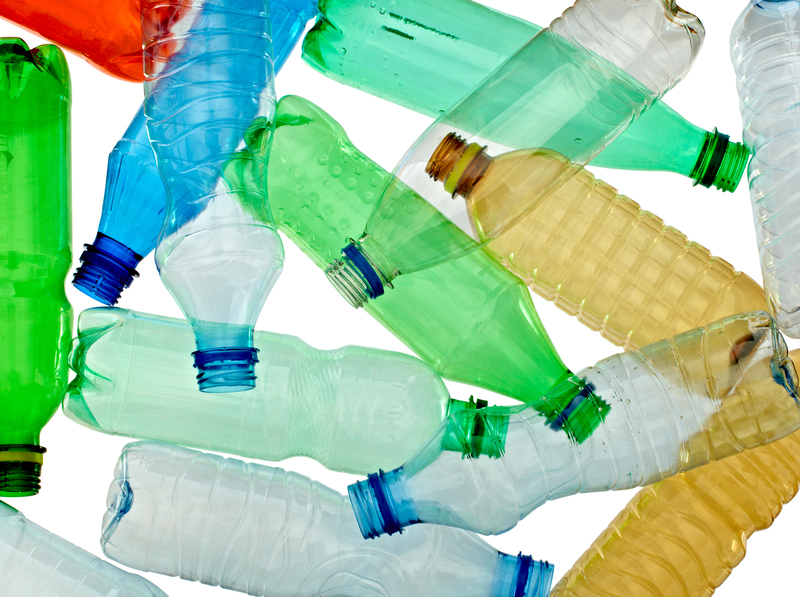Improve Office Sustainability with Enhanced Recycling
Sustainability in the workplace has become more than just a trend--it's now a crucial responsibility for businesses aiming to create a positive environmental impact. Among the most practical and impactful strategies available is enhancing recycling initiatives. Improving office sustainability with enhanced recycling not only cuts down waste but also contributes to resource conservation, employee engagement, and even long-term cost savings.
This comprehensive guide will help you understand why recycling is essential for workplace sustainability, how to implement effective recycling programs, and offer actionable steps to improve your office's sustainability with efficient recycling systems.

Why Focus on Office Recycling?
Offices produce significant amounts of waste daily, including paper, plastics, electronic devices, and even food scraps. Without effective recycling, these materials often end up in landfills--contributing to pollution and resource depletion. Recycling in offices not only reduces environmental impact but also fosters a culture of responsibility and innovation among employees.
The Significance of Office Waste
- Papers and Documents: According to the EPA, paper comprises about 26% of total landfill waste--much of it generated by offices.
- Packaging Materials: Unnecessary packaging from office deliveries adds to plastic and cardboard disposal.
- Electronic Waste (E-Waste): Outdated computers and peripherals are hazardous if not recycled correctly.
Enhanced recycling for offices means taking deliberate steps to identify, sort, and manage different types of waste efficiently.
Benefits of Enhanced Recycling Programs in the Workplace
- Environmental Conservation: Efficient recycling keeps waste away from landfills, reduces greenhouse gas emissions, and saves natural resources.
- Cost Reduction: Less waste disposal means lower ferrying and landfill charges for your business.
- Legal Compliance: Many cities mandate strict recycling practices--especially for electronics and hazardous waste--compliance avoids fines.
- Corporate Image and Culture: Clients and employees favor organizations with a strong commitment to sustainability.
- Employee Engagement: Recycling programs can boost morale by involving staff in meaningful environmental initiatives.
Improving Office Sustainability: How Enhanced Recycling Helps
An enhanced recycling program goes beyond simply placing recycling bins around the office. It involves education, strategy, and ongoing engagement to ensure long-lasting changes. The following sections detail how you can launch or supercharge recycling efforts for your organization.
Steps to Improve Office Sustainability with Enhanced Recycling
1. Conduct a Waste Audit
Before making improvements, assess what type and how much waste your office produces. Sort through trash and recycling bins for a week and categorize materials as follows:
- *Paper and cardboard*
- *Plastics*
- *Metals and glass*
- *Electronics*
- *Organic waste (food & compostables)*
This audit uncovers where improvements can make the most significant impact and is the foundation for a sustainable office recycling plan.
2. Set Clear Sustainability and Recycling Goals
Having quantifiable objectives motivates employees and allows you to track progress over time. Examples include:
- Reduce landfill-bound waste by 30% within one year
- Recycle 100% of eligible electronic devices
- Decrease paper usage by digitizing processes
Publicize these goals in your workplace to reinforce their importance and gain buy-in from your team.
3. Upgrade Your Recycling Infrastructure
Ensure your office recycling system includes the following:
- Labelled Bins: Use clearly marked bins for paper, plastics, glass, metals, and compostables. Color coding helps minimize mistakes.
- Centralized and Accessible Locations: Place recycling stations in high-traffic areas such as kitchens, break rooms, and near printers.
- Specialty Collection Points: Designate spots for e-waste, batteries, and toner cartridges to prevent hazardous material mishandling.
Your enhanced recycling setup should make sustainable choices the most convenient alternative for every employee.
4. Educate and Involve Employees
Successful office recycling programs require employee participation. Raise awareness by:
- Hosting training sessions on what can and cannot be recycled
- Sharing recycling tips through emails or posters
- Organizing green challenges or competitions between departments
- Appointing sustainability ambassadors or forming a green team to monitor progress
Employee engagement ensures that best practices are adopted and helps build a lasting culture of sustainability.
5. Reduce Waste at the Source
Cutting waste is often more effective than recycling it. To improve office sustainability, consider:
- Switching to digital documents where possible
- Encouraging double-sided printing or setting it as the default
- Using reusable kitchenware instead of disposables
- Opting for bulk supplies to minimize packaging
- Working with eco-friendly suppliers who use recyclable packaging
Such source reduction strategies are a crucial extension of any enhanced recycling program.
6. Monitor and Report Progress
Use visual dashboards or monthly status reports to keep everyone informed about how much has been recycled and what impact it's had. When employees see real results--like a decrease in waste volume or a reduction in supply purchases--they're motivated to keep improving.
7. Partner with Responsible Waste Management Vendors
Work with certified recycling and waste management firms that offer transparency and a proven track record in sustainable waste processing. They can advise on best practices, help with staff training, and ensure all waste is processed according to environmental regulations.
8. Encourage Creative and Community-Oriented Recycling
Some materials can have a second life through donation or creative reuse. For example:
- Old electronics can be donated to schools or charities
- Paper scraps can be used for internal memos or note pads
- Office furniture can be refurbished or given to local nonprofits
Such innovative approaches deepen employee pride in their company's commitment to sustainability and extended community responsibility.
Enhanced Recycling Best Practices for Office Sustainability
Adopt a Circular Economy Mindset
Move beyond linear "take, make, waste" approaches. Invest in closed-loop recycling systems-- such as using recycled paper for printing and ensuring those papers can again be recycled.
Stay Informed About Recycling Regulations
Compliance is key. Proper disposal of e-waste and hazardous materials, like fluorescent lamps, keeps your office compliant and sustainable.
Leverage Technology for Better Tracking
- Install smart waste bins to monitor and report levels in real time
- Utilize mobile apps to educate employees and gamify recycling
These tools can increase the efficiency of your office's sustainability efforts through automation and analytics.
Recognize and Reward Sustainability Champions
Set up a recognition system to reward departments or individuals who excel in recycling and waste reduction. This boosts participation and morale.
Common Recycling Mistakes to Avoid
Even with the best intentions, mistakes can reduce recycling effectiveness. Avoid these common pitfalls:
- Wishcycling: Placing non-recyclables in recycling bins, which can contaminate entire batches of recyclables.
- No Bin Standardization: Inconsistent bin colors or labels confuse employees.
- Ignoring E-waste: Failing to separate electronics leads to hazardous landfills and data security concerns.
- Lack of Ongoing Training: Employees may forget or become lax--keep sustainability top of mind with regular updates.
Case Studies: Office Recycling Success Stories
Google's Zero Waste Initiatives
Google is renowned for its aggressive office sustainability programs. Their recycling rates exceed 90%, with comprehensive office composting, electronics recycling, and efforts to source sustainable office products. Transparent reporting and employee rewards have been crucial to their success.
Unilever's Closed Loop Office System
Unilever implemented a closed-loop office waste system that recycles paper products into tissue and other supplies distributed internally. This not only reduced their waste volume but also decreased office supply purchasing costs.

Future Trends: How Will Enhanced Recycling Shape Office Sustainability?
- Smart Recycling Technology: AI-driven waste sorting and automated waste tracking will improve recycling rates and accuracy.
- Carbon Footprint Labeling: Offices will look for vendors and products with clear sustainability credentials.
- Work-From-Home Adaptations: As hybrid work becomes the norm, companies will assist employees with home recycling resources to maintain overall sustainability goals.
- Better Recycling Markets: Advances in recycling processing will make more materials profitable to recycle, benefiting both the environment and business bottom lines.
Conclusion: Take Action and Improve Your Office Sustainability with Enhanced Recycling
Improving office sustainability with enhanced recycling isn't just about putting extra bins out--it's about constructing a meaningful, innovative program that engages employees, aligns with company values, and thoroughly reduces environmental impact.
- Start with a comprehensive waste audit
- Set specific sustainability goals
- Install clear, accessible recycling stations
- Provide regular employee education
- Include specialty waste like e-waste and composting
- Track results and celebrate achievements
Your office can become a model for sustainable workspaces, showing clients, employees, and the broader community how much can be gained from stronger recycling initiatives. By prioritizing sustainability, you don't just help the planet--you contribute to a more engaged, efficient, and forward-thinking organization.
Ready to enhance your office recycling program? Today is the day to take action for a greener, sustainable future!